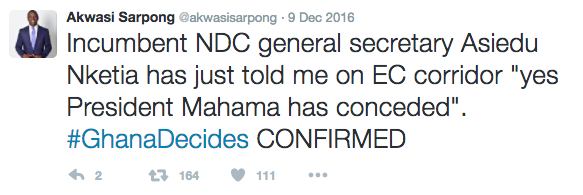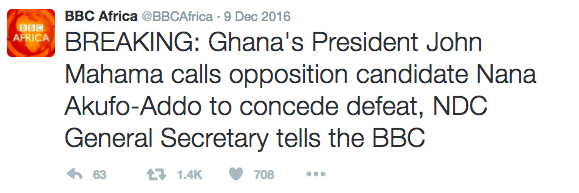The past year has seen the emergence of a disturbing trend throughout the African continent: the restriction of — or outright ban — on citizen access to and use of the internet, and social media in particular.
In May 2016, Uganda’s government ordered the country’s social media and mobile money services to be shut down amidst growing voices online speaking out in opposition to the impending inauguration of President Yoweri Museveni for his fifth consecutive term in office. In December 2016, The Gambia banned internet use just ahead of the country’s presidential elections, leaving citizens unable to follow developments online and leading international news correspondents to use VPNs (virtual private networks) to connect to their organisation’s internal networks and relay information. A total of 52 internet shutdowns were documented across the globe in 2016 alone; African countries contributed 11 shutdowns to that total.
Amidst the growing number of politically related internet shutdowns, Ghana’s use of the internet before, during and after its recent presidential election stood out — and highlighted many of the benefits of citizens having full access to an open Web during election time.
At first, Ghana looked to be falling in line with the growing trend of closing online freedoms when, in July 2016, Ghana’s Inspector General of Police announced that a countrywide social media blackout was possible before and after election day. Governance analysts, activists, civil society groups and citizens took to both traditional and social media to express their concerns around the danger of such a decision for the country’s celebrated values of democracy and freedom of expression. Government officials listened and opted to keep the internet on and open throughout the election period — a decision that contributed to Ghana’s peaceful and credible December 2016 election.
Government use of social media
The Ghanaian police and security services actively used social media to share public safety information during the election period. The Electoral Commission of Ghana similarly used Twitter to share updates on the voting and electoral processes, as well as responses to allegations or challenges (like the attempted hack of the Electoral Commission’s website) that could potentially undermine the electoral process.

Incumbent President John Dramani Mahama also took to Twitter during this time to directly encourage the public to stay calm while votes were counted.

Civil society engagement online
Ghana’s society groups were also very active throughout the election. Ghana’s Coalition of Local Observers (CODEO), which monitored conduct at the polls, also ensured regular engagement with citizens through Twitter and called for calm when both dominant political parties claimed victory — before the official conclusion of vote counting.

Activists and organisations took to online spaces to discuss party manifestos and campaign promises and to share ideas with policymakers and fellow citizens. Online citizens were able to stay informed and up-to-date by following the hashtag #GhanaDecides, and through updates shared via channels like @BloggingGhana, @OccupyGhana and @GhanaElections.
Free and independent media
Since liberalising its media in 1992, Ghana has developed a very vibrant media space. Journalist reporting was central to this recent electoral process, with reports on key campaign issues and live reporting from polling stations across the country working to keep citizens informed and engaged. International correspondents provided up-to-the-minute updates on the election process and broke news of the the incumbent’s concession to the opposition leader.


Potential for the internet in Africa
Ghana’s recent election shows the power of an on and open internet to contribute to an engaged, peaceful and credible election. Ghana is not alone in making a case for this — Nigeria’s election of President Muhammadu Buhari in April 2015 saw politicians and citizens alike use social media and online spaces extensively.
And yet, this great potential remains untapped. The majority — 75% — of Africa’s population remains offline, and the trend of internet shutdowns has been upward. Though the foundations for increased mobile phone penetration and access to basic data at affordable rates have been established, many policies throughout the continent threaten to keep basic broadband unaffordable for millions of Africans. It is critical that we continue our work to develop the policy and regulatory frameworks needed to drive prices down, and enable those currently offline to engage civically, politically, and economically online.
2017 will see a number of new elections held in Africa — Kenya, Liberia, Somaliland, and Rwanda will all head to the polls this year. Civil society actors, the media, and activists all have important roles to play in advocating for the internet and social media to be kept on and open, and highlighting to decision-makers examples of the democratic successes enabled by keeping the Web free and open during election periods. At the same time, it will be critical for governments to embrace the opportunities presented by keeping the internet on during elections, and to work to ensure it remains open, accessible, and affordable for all.
This post was written by Eleanor Sarpong, A4AI’s Policy and Advocacy Manager. A longer version of this post appeared as an article in Ghana’s MyJoyOnline on January 10, 2017.
